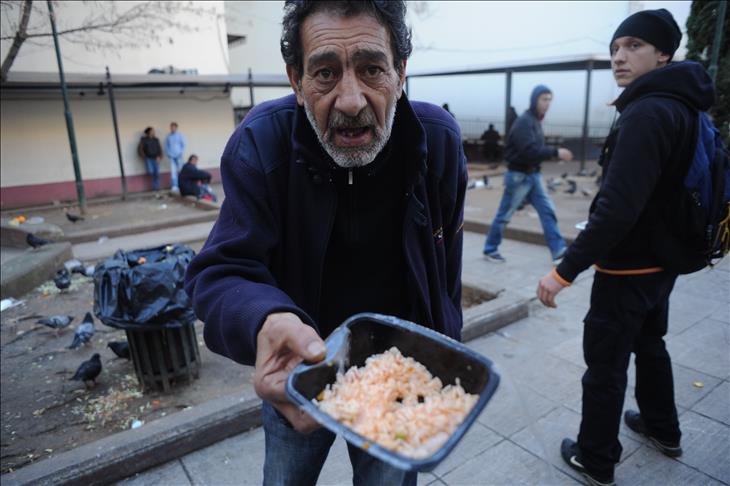
By Ilgin Karlidag
BRUSSELS
As Greece formally requested a six-month extension of its unpopular loan agreement with its Eurozone partners Thursday, a new study reveals that bailout austerity measures hurt the vulnerable the most.
"The people paying the highest price currently are those who had no part in the decisions that led to the crisis, and the countries worst affected are amongst those with the biggest gaps in their social protection systems," European charity Caritas reported.
Caritas conducted a study on seven European countries affected by austerity and which have received international financial assistance in the past years: Greece, Ireland, Italy, Spain, the Greek Cypriot administration, Portugal and Romania.
The report states that bailouts in several European countries have affected the poor, children, the unemployed and people with disabilities.
"On the one hand, families became more at risk of poverty due to rising unemployment levels and significantly reduced incomes; on the other, austerity measures introduced by Member States led to cutbacks in child and family-related services," Caritas said in the report.
"Services for children and their families have often been cut back just when they are most needed," it added.
European Union statistical office Eurostat estimates that 25.47 million people in the 28-nation bloc were unemployed in April 2014 and 18.75 million of them were in the euro currency area.
Greece saw the biggest increase in Europe in the at-risk-of-poverty or social exclusion rate during the 2008-2013 period, according to Eurostat.
Broken promises
The leftist SYRIZA party, recently elected on the promise that it would end austerity measures, had continuously demanded changes to the terms of the country’s €240 billion ($274 billion) bailout -- which expires on Feb.28
Greek Finance Minister Yanis Varoufakis had also rejected any continuation of the current bailout plan and called for the consideration of a proposal from the European Commission in which Greece would get four to six months’ credit in return for a freeze on its anti-austerity policies.
However, after mounting pressure from its eurozone partners and amid prospect of running out of money if no agreements were reached, Greece formally submitted a request for six-month extension of its unpopular bailout on Thursday.
'Disconnected technocrats'
Greece’s current loan agreement is with the so-called “troika” -- the European Commission, European Central Bank and the International Monetary Fund -- which oversees adjustments in the bailout program.
However, Caritas reports that none of the so-called troika partners are democratically elected bodies, suggesting that economic "technocrats" are disconnected from ordinary Europeans.
"While often represented as neutral technocrats, Troika members actually act from highly political views on the role of government in society, on labour market functioning and on levels of social spending," the report said.
The European Central Bank has stopped accepting Greek bonds and state-guaranteed bank bonds as collateral for bank funding, meaning the only source Greek banks have for euro liquidity is emergency funding from the European Central Bank.
Anadolu Agency website contains only a portion of the news stories offered to subscribers in the AA News Broadcasting System (HAS), and in summarized form. Please contact us for subscription options.

